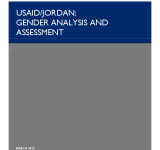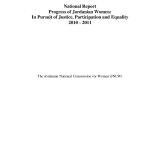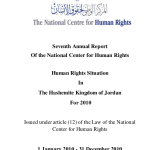The report presents an up-to-date analysis of gender disparities in Jordan to inform development assistance programs by the USAID for the 2013-2017 strategic plan. The assessment report is prepared by the Global Health Technical Assistance Project;; funded by USAID Jordan and therefore;; it is based on a literature review and field work of the 21 focus group discussions held in Amman;; Irbid;; Tafileh and Zarqa. The report establishes that Jordan has begun to transition to a knowledge-based economy with the national advantage as its people. It also points out that despite the investments that have helped address gender equality issues;; Jordan continues to bear low female participation in the labor markets;; gender stereotypes about the role of females and males and conservative cultural norms. The report includes a sector-by-sector analysis;; recommendations;; gender review and an illustrative implementation plan. It concludes with key recommendations on the wide breadth of the USAID Jordan portfolio with a key emphasis on gender issues.


